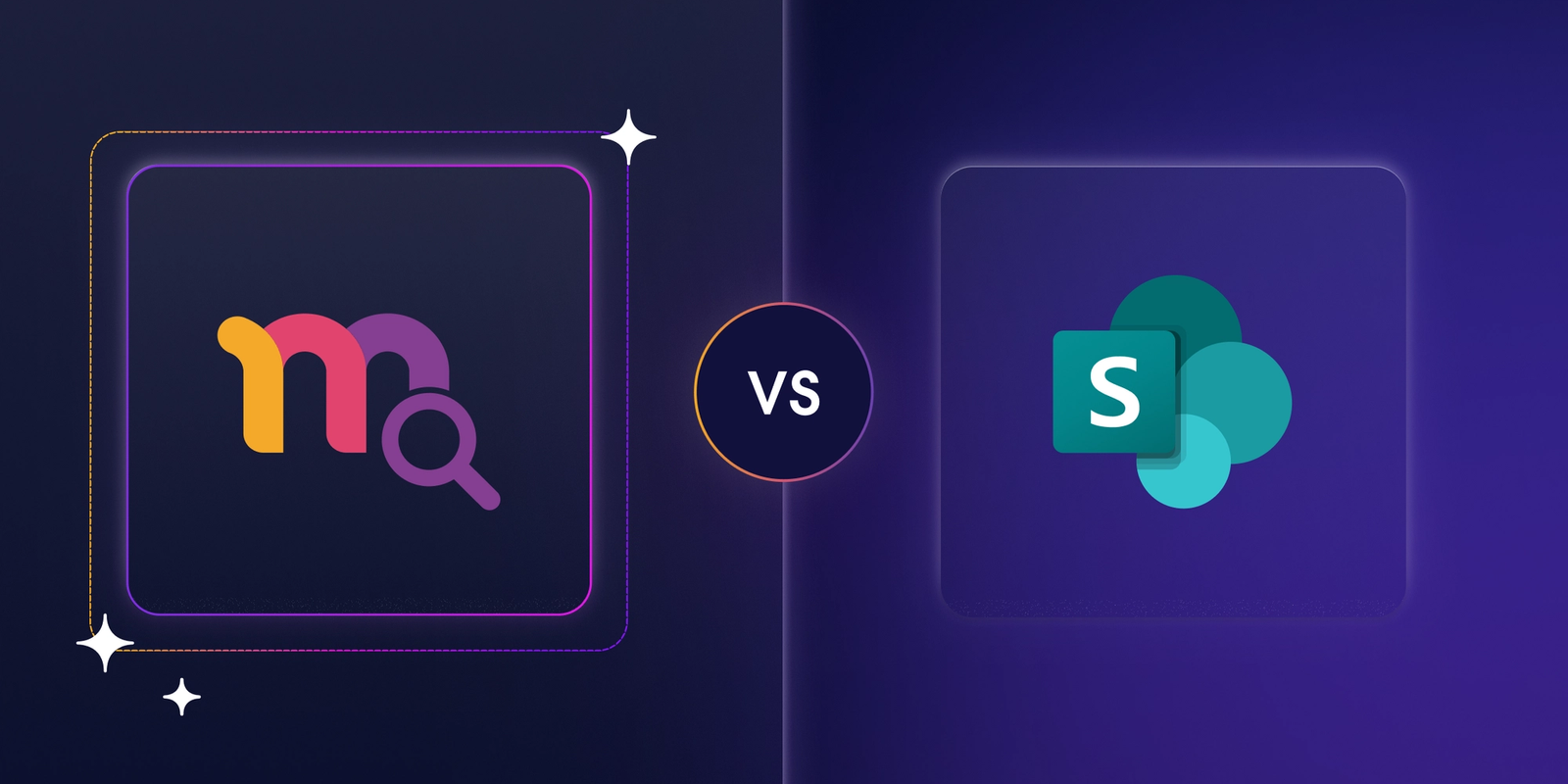Beyond Microsoft: Medullar's Approach to Cross-Platform Knowledge Collaboration
Thursday, May 8, 2025

Medullar vs. SharePoint: Key Differences Explained
Medullar and SharePoint are both platforms designed to help organizations manage information and collaborate, but they differ significantly in their architecture, integration approach, user experience, and core strengths.
Core Purposes and Approach
- Medullar is an AI-powered data discovery and insight platform- designed to act as your extended digital mind. Its core purpose is to unify scattered information-across your computer, emails, calendars, apps, and the web-into a single, secure, and collaborative hub. Medullar enables individuals and teams to discover, organize, connect, and amplify their knowledge; making it easier to find and use information efficiently.
- Microsoft SharePoint is a web-based platform enabling organizations to create secure websites for storing, organizing, sharing, and accessing information. It is part of the Microsoft 365 suite and is widely used as a collaboration and content management system for businesses.
Integration and Ecosystem
- Medullar integrates with over 60 different apps and data sources including non-Microsoft platforms, offering a broad, federated search across disparate systems. Its strength lies in being ecosystem-agnostic, allowing users to access and connect information from a wide variety of sources without moving data.
- SharePoint offers integration within the Microsoft 365 suite (Teams, Outlook, OneDrive, Power BI, etc.), making it a good fit for organizations heavily invested in Microsoft products, but integrating non-Microsoft applications often require additional customization or third-party solutions.
User Experience and Collaboration
- Medullar provides AI-powered search and summarization, collaborative “Spaces” for research and knowledge sharing, and a focus on amplifying knowledge through intelligent connections and insights. Its interface is designed for intuitive, cross-platform knowledge discovery and teamwork.
- SharePoint offers customizable sites, document libraries, lists, and workflow automation, but its full potential often requires a tailored setup with ongoing IT support- especially for complex or large-scale deployments.
Data Storage and Security
- Medullar does not move or duplicate data; it accesses information in its original location, ensuring security and compliance by design. All interactions are encrypted, and users retain control over their data.
- SharePoint centralizes content within its own environment (cloud or on-premises), with version control, permissions, and compliance features. It is built to manage large volumes of documents and sensitive information securely, especially within regulated industries.
Customization and Automation
- Medullar focuses on AI-driven workflows and knowledge discovery rather than heavy customization of business processes.
- SharePoint is customizable, supporting extensive workflow automation, custom web parts, and deep configuration options for business processes and intranet needs.
Data is scattered everywhere these days - oftentimes within both Microsoft and non-Microsoft data silos. Medullar excels at tackling the user’s whole data ecosystem by unifying and searching knowledge across many platforms without data migration, whereas SharePoint is only able to dive deep into Microsoft’s suite. The right choice depends on whether your organization needs dynamic, cross-platform knowledge discovery (Medullar) or centralized content management within Microsoft 365 (Sharepoint).
